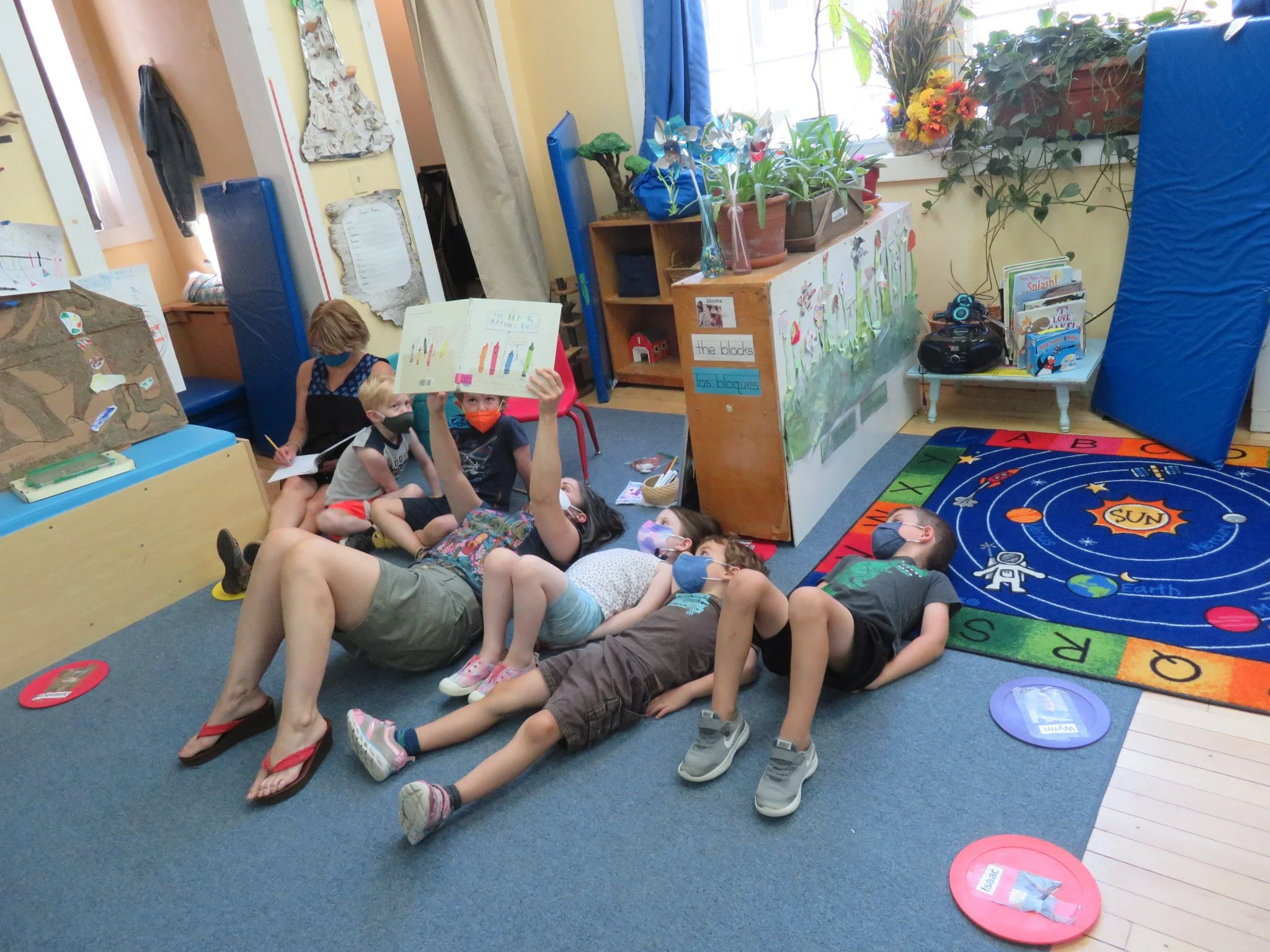Curriculum
At Nonotuck children are the curriculum. That is, everything we do with children– from helping them set up nap cots independently to learning to recognize their names– is preparation for their continued growth and development and future academic success. We support children’s emotional well-being and believe that human connection is the core of healthy development. We encourage parents to practice techniques that build connection and resilience and which foster the development of their children’s executive functioning.
Learning comes through free play. This is the gold-standard of progressive early education. Free play in a rich environment with caring adults is what children this age need to learn and develop. Our curriculum is child-centered, meaning it is jointly negotiated between the children and the teachers, and it emerges from the children’s interests as well as from the teachers’ observations and understanding of the “hidden questions” that children are working to answer through their play. Our curriculum is informed by the National Association Education for the Education of Young Children Developmentally Appropriate Practice Guidelines, the Massachusetts Guidelines for Preschool Learning Experiences, and the Learning Together with Young Children curriculum framework and other books by Margie Carter and Deb Curtis, as well as the Creative Curriculum for Infants and Toddlers and Creative Curriculum for Preschool. We offer a variety of experiences and materials to help children master a wide range of skills and concepts. We emphasize the concept of community and teach children to celebrate their connections to one another in Nonotuck’s diverse community.
Our goal is to provide ample opportunities for cognitive, artistic, social, emotional, and physical development throughout the school day. The rooms at Nonotuck are flexible learning environments that are tailored to reflect the interests of each group. We don’t teach by set ‘themes’, although they will emerge naturally as we follow the children’s interests (and teachers’ too) and find things to explore that encourage children to think, question, anticipate and predict. In the process, children are prepared to be active learners. The teachers work to design a space that is rich in opportunities for children to explore and create.
We support the children’s exploration of scientific and mathematical concepts by providing many opportunities for them to form theories and test them. We work to foster a meaningful relationship with the natural world by allowing the children to care for the plants and animals in our classrooms as well as tend our playground garden areas; we also take advantage of the natural resources in our neighborhood including the Mill River and neighbors’ gardens, and the children participate in daily outdoor adventures.
We offer classroom activities that promote a love of books, reading, and the arts. Children are encouraged to express themselves through music, movement, painting, sculpture, and other art activities. We supplement classroom experiences through the use of our art studio, under the guidance of an art teacher and children also participate in yoga and movement classes. In addition to our outdoor playgrounds, children are able to use our indoor play space, guaranteeing sufficient physical activity regardless of the weather.
Regarding Kindergarten Readiness
Everything we do is prep for kindergarten! According to the Massachusetts Pre-K standards:
Curriculum is defined as everything staff do with children. A well-balanced curriculum supports the development of all children socially, emotionally, physically, and intellectually. The curriculum should be designed for active involvement by children in the learning process, recognizing that young children learn through play, active manipulation of the environment, concrete experiences, and communicating with peers and adults. The curriculum should provide a variety of activities and materials to encourage behaviors appropriate to each child’s age, background, stage of development, and individual needs, including adaptations for children with disabilities.
Starting kindergarten does not require any writing, reading, or math skills, although the children who are ready for them will learn them at Nonotuck. Some children begin to recognize the letter sounds as well as shapes, and teachers will encourage this through available materials and activities. Because we follow their natural development, children will be ready for more structured learning that comes as they grow older. Nonotuck children enter private and public kindergartens and thrive in all of them.


